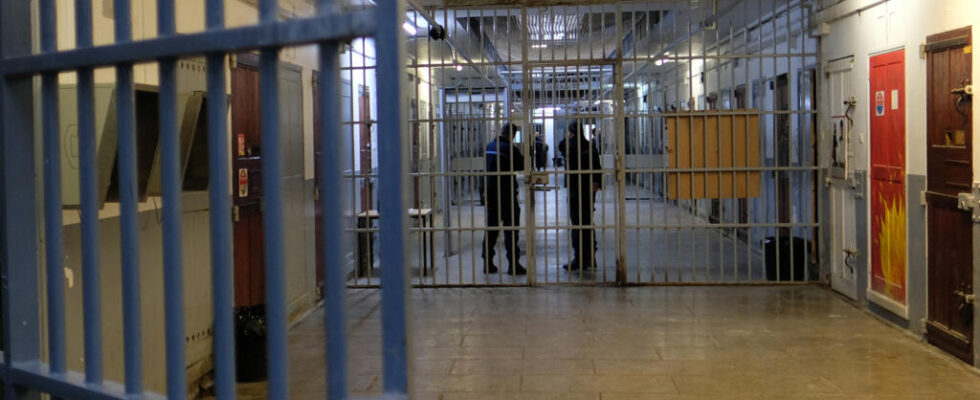The environmental NGO Notre affaire à tous published a study on Thursday, July 11, called ” Double punishment: climate and environmental risks in French prisons “For two years, this association has scrutinized the 188 penitentiary establishments in mainland France and overseas, which house nearly 78,000 prisoners. So many people who are even more severely penalized by climate change, since no prison, even among the most recent, is immune to climate risks.
4 mins
Heatwaves, degradation of buildings and even the risk of submersion: French prisons are particularly vulnerable to climate change. Because already, some prisoners hang wet laundry on the bars to try to cool down in the summer: in the 9m2 cells, the temperature rises to 39°C.
The heatwave has a special significance for prisoners, given their difficulty in accessing a shower or airing their cells. In addition, “ The exercise yards are often unsuitable during periods of extreme heat, because they are entirely concreted, without trees, and sometimes even without an awning or shelter to provide shelter. “, note the authors of the reportemphasizing that ” Prison overcrowding makes heatwave even more unbearable “.
Winter is hardly more pleasant, with temperatures below 0°C.
The study found that no prison, even the most recent, is immune to climate risks.
Deterioration of buildings and flood risks
Another risk linked to climate change: the phenomenon of shrinkage-swelling of clays, which can damage the building. More than half of French prisons are exposed to a risk ” medium or strong ” on this plan. This can lead to cracks in the walls, non-sealing windows, burst pipes, and therefore weigh on the living conditions of the prisoners, insists the NGO.
More than a quarter of prisons are also exposed to a risk of moderate to significant » flooding, 12% could be affected by a forest fire. And eight establishments are concerned by the risk of rising waters or marine submersion, including three – all in Overseas, in New Caledoniain Guyana and in Wallis – risk finding themselves ” below sea level due to climate change “.
The association calls on public authorities to “ identify “the most vulnerable prisons for” prioritize their closure, repair or development “, adapt and ” to vegetate “current buildings, despite security constraints and” avoid the establishment of new prisons in areas that are likely to be submerged on the horizon 2100 “.
” There are certain prisons in France which combine risksexplains Chloé Lailler from the NGO Notre Affaire. Some will have aggravating factors, such as the juvenile prison of La Valentine, in Marseille, which is affected by the risk of heatwave, but also of forest fires, since it is located next to a natural area. It is next to a railway line, all with a minor public, which can have a particular impact on them. »
According to Chloé Lailler, the rapporteur for the NGO Notre affaire à tous, “there are certain prisons in France which accumulate risks”
In a statement sent to AFP, the prison administration assured that it had “ launched a project ” aiming to ” identify » the effects of climate change and the « needs and possible means of adaptation » prisons.
The use of anti-heatwave solutions classics “, such as ventilation or sun protection devices, is necessarily limited in prison by security constraints. However, “ New construction programs integrate heat-fighting issues ” she assured.
France already condemned several times for the state of its prisons
Seven out of ten prisons are built on polluted soil. Four out of ten are located near a railway line, an airport, or a major road. All these are sources of noise pollution or air pollution.
These environmental risks are compounded by overcrowded and dilapidated prisons. Some 77,880 people are being held in France as of June 1, 2024, bringing prison density to 126.2% in the country, according to figures from the Ministry of Justice. France has has already been condemned several times over the state of its prisons and its consequences on the dignity of prisoners and their physical and mental condition.
